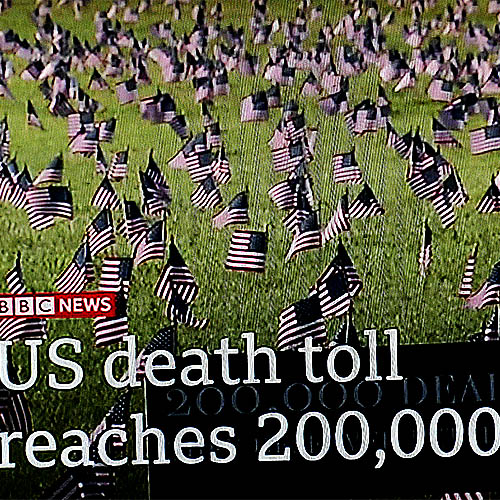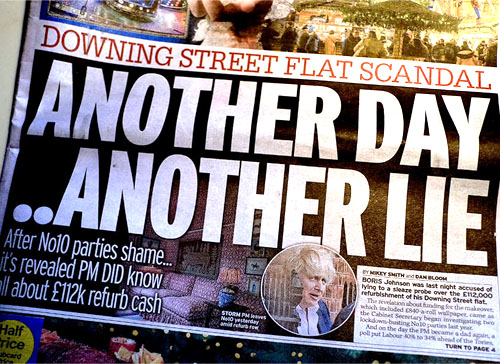On Misinformation
Like millions of football fans around the world, I have been watching the European Football Championship. The number of footballers feigning injury from a harmless and legal tackle is increasing exponentially. And they can be quite convincing with their animated movements and facial expressions. Sometimes this play-acting can end up with the target opponent receiving a yellow card or, in the extreme, a red card. Resultant free kicks can bear match-winning fruit. Now this misdemeanour will hardly change the world but others will…It’s all part of the misinformation pandemic which in its more critical forms can cost lives, livelihoods and cause irreparable damage.
“Seitz, Singer, Nierenberg and Jastrow had all served in high levels of science administration, where they had come to know admirals and generals, congressmen and senators, even presidents. They had also dealt extensively with the media, so they knew how to get press coverage for their views, and how to pressure the media when they didn’t. They used their scientific credentials to present themselves as authorities, and they used their authority to try to discredit any science they didn’t like.”
Over the course of more than twenty years, these men did almost no original scientific research on any issues on which they weighed in. Once they had been prominent researchers, but by the time they turned to the topics of our story, they were mostly attacking the work and reputation of others. In fact, on every issue, they were on the wrong side of the scientific consensus. Smoking does kill-both directly and indirectly. Pollution does cause acid rain. Volcanoes are not the cause of the ozone hole. Our seas are rising and our glaciers are melting because of the mounting effects of greenhouse gases in the atmosphere, produced by burning fossil fuels. yet for years the press quoted these men as experts, and the politicians listened to them, using their claims as justification for inaction. President George H. W. Bush once referred to them as “my scientists.” Although the situation now is a bit better, their views and arguments continue to be cited on the Internet, on talk radio, and even by members of the U.S.A. Congress.
Why would scientists dedicated to uncovering the truth about the natural world deliberately misrepresent the work of their colleagues? Why would they spread accusations with no basis? Why would they refuse to correct their arguments once they had been shown to be incorrect? And why did the press continue to quote them, year after year, even as their claims were shown, one after another, to be false? This is the story we are about to tell. It is the story about a group of scientists who fought the scientific evidence and spread confusion on many of the most important issues of our time. It is a story about a pattern that continues today. a story about fighting facts, and merchandising doubt.
This Week…
The UK prime minister falsely claimed during a debate with the Labour leader that the Labour party would tax British earning households an additional £2,000 (per annum) tax to cover spending commitments if elected to government. Sunak cited that the (independent) civil service (at the Treasury) had compiled and approved the figures. Within hours it became clear from the head of that branch of the civil service that they had not compiled the figures, and that Conservative special advisors had provided Labor projected spending data. In short, it was all lies. And yet the press and broadcast media spent days headlining the claim while Conservative senior politicians were hauled out to justify the deception. The wrong information and lack of information are both prevalent in the current UK election leaving the voter unsure and confused, potentially leaving it open for the far-right to gain valuable seats.
EU Referendum
It’s just another example of misinformation that gathers credence through media coverage. The strategy was seen fully exposed during the EU referendum in 2016 when a battle bus was daubed with the claim that by leaving the UK would save the country over £350 million per week. It was claimed also that the country would “take back control” of its borders, regulations, trade and economy (amongst other things). No statistical information was provided to parliament projecting the net affect of leaving, but other specialist bodies predicted that the country’s economic wealth would be reduced by 4% (translating into losses of £billions each year) on leaving the EU. Overwhelmingly, the press promoted leaving the EU echoing various spurious claims. The UK population (with the notable exception of Northern Ireland and Scotland who voted 60% against leaving) voted to leave by 51% against 49% (hardly conclusive). Gross misinformation had been believed and the country’s future health had been put at substantial risk.

|

Soil |
LATEST GALLERY IMAGES

St Vincent 2025 
The Prodigy |
|
|






